Ferguson riots: a story of black poverty and white supremacy
America's first black president is either reluctant or unable to take on the issue of inequality
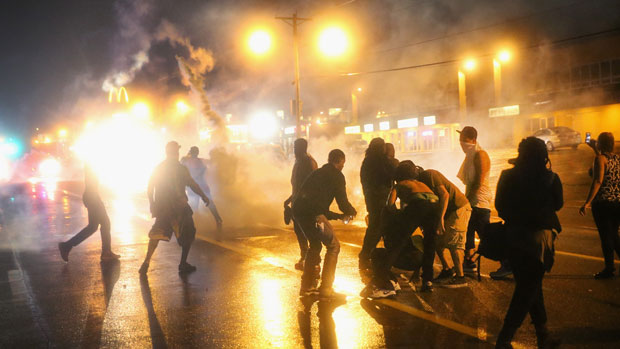
A free daily email with the biggest news stories of the day – and the best features from TheWeek.com
You are now subscribed
Your newsletter sign-up was successful
Ferguson, Missouri took on the aura of a full-blown American race riot yesterday as President Obama announced a White House intervention and the National Guard arrived on its shabby suburban streets, so adding its name to the shameful roster of Watts, Newark, Detroit and the last, Los Angeles in 1992.
If the increasing “militarisation” and excessive force of the police had been the spark in the tinder box – as dissenting voices had been warning for months while police binged on armoured vehicles, machine guns and sniper rifles left as surplus from the “war on terror” – there is a dreadful irony in that it now takes the actual military to restore order.
Obama trod a fine rhetorical line and stayed away from the battle zone. Instead, he is sending his Attorney General, Eric Holder, to conduct the show of justice over the killing by a policeman of the unarmed black teenager Michael Brown. He felt the “passions and anger” of his fellow black Americans, but warned that looting or attacking the police “undermines rather than advances justice”.
The Week
Escape your echo chamber. Get the facts behind the news, plus analysis from multiple perspectives.

Sign up for The Week's Free Newsletters
From our morning news briefing to a weekly Good News Newsletter, get the best of The Week delivered directly to your inbox.
From our morning news briefing to a weekly Good News Newsletter, get the best of The Week delivered directly to your inbox.
All of which leaves the question: Will the violence spread?
Ferguson is a small municipality of 21,000 people, not so much a town as a slice of suburban sprawl, but it is also a microcosm of contemporary America beyond the gated walls of the top 10 per cent.
Ferguson has its own history and its own peculiarities as a suburb of St Louis, the once great Midwestern city with its soaring arch representing the Gateway to the West, now depopulating at a rate second only to Detroit.
But it shares trends both old and new with small towns and cities all over America.
A free daily email with the biggest news stories of the day – and the best features from TheWeek.com
While television news cameras have been focused on clouds of tear gas and confrontations with phalanxes of police since Brown's death, the Brookings Institute think tank yesterday pointed a finger in a rather different direction.
Elizabeth Kneebone, a fellow in Urban Policy, pointed out that Ferguson was “emblematic” of the wave of rising poverty in the suburbs of all of America’s 100 largest metropolitan centres, suburbs both mostly white and mostly black. Ferguson is an example of a suburb where the middle class is being squeezed into poverty by America’s yawning income gap.
“Between 2000 and 2010-2012, Ferguson’s poor population doubled,” writes Kneebone. “By the end of that period, roughly one in four residents lived below the federal poverty line ($23,492 for a family of four in 2012), and 44 per cent fell below twice that level.
“As dramatic as the growth in economic disadvantage has been in this community, Ferguson is not alone.
“Within the nation’s 100 largest metro areas, the number of suburban neighbourhoods where more than 20 per cent of residents live below the federal poverty line more than doubled between 2000 and 2008-2012.
"Almost every major metro area saw suburban poverty not only grow during the 2000s but also become more concentrated in high-poverty neighbourhoods. By 2008-2012, 38 per cent of poor residents in the suburbs lived in neighbourhoods with poverty rates of 20 per cent or higher. For poor black residents in those communities, the figure was 53 per cent.”
Like all of Detroit and much of many other American cities, Ferguson is also a product of 40 years of “white flight”. St Louis was once a city of great black hopes, a station on the march from poverty and Jim Crow laws in the South to new opportunities in the industrial North. The inner cities became increasingly black while prosperous post-war whites decamped to the new suburbs.
Ferguson was once a new, white suburb. Then black Americans moved in from the city, bringing with them the same middle-class aspirations as their white predecessors, who now, with growing affluence, moved on to a new ring of suburbia, with newer, larger shopping malls and newer, larger houses.
The curious phenomenon which has emerged from the Ferguson riots is that in this process the white power structure stays behind as the community turns black. The result is a white police force in power over a black community – “serving” would be the wrong word – with a white mayor, and five white councillors out of six. Even without America’s history of ingrained racism and violent law-enforcement, this would make the police look like an army of occupation.
Jeff Smith, a former Missouri state senator who now teaches at the New School university in New York, wrote in an op-ed for the New York Times that the domination of the politics and economics of Ferguson extends even to labour unions and the sort of blue-collar jobs that created the middle class of the American Dream.
“Long-time white residents have consolidated power,” he wrote, “continuing to dominate the city councils and school boards despite sweeping demographic change. They have retained control of patronage jobs and municipal contracts awarded to allies.
“The North County Labor Club, whose overwhelmingly white constituent unions (plumbers, pipe fitters, electrical workers, sprinkler fitters) have benefited from these arrangements, operates a potent voter-turnout operation that backs white candidates over black upstarts.”
The way that local municipal police forces finance themselves through the fines they themselves levy perverts the justice system. In any American town, the cop looking to issue a speeding ticket is filling the coffers that pay his wages, and that turns him into predator rather than protector. When the cops are white and the population they need to soak for fines is black, racial confrontation is inevitable.
None of this is new. The puzzle is that no level of American government tackles the problem until the cities are ablaze. As Ferguson blew up last week, the state governor had the brainwave of giving the job of quelling the rage to a black traffic cop, sending the white officers in their riot gear back to barracks. When that cynical gesture worked only for a day, he called in the National Guard.
President Obama yesterday returned for the day to the White House from his seaside holiday to announce that Holder would go to St Louis to meet with FBI agents and prosecutors who will run their own investigation into the killings, and sit down with community leaders “whose support is so critical to bringing about peace and calm in Ferguson’’.
But there were no plans for him to go to the scene himself. America’s first black president has proved himself either reluctant or unable to take on an issue for which he is eminently qualified – equal justice and equal opportunity for black Americans.
In her Brookings Institute report, Kneebone describes the cycle of increasing poverty, decreasing resources for health, education and employment, and rising crime, and concludes: “None of this means that there are 1,000 Fergusons-in-waiting, but it should underscore the fact that there are a growing number of communities across the country facing similar, if quieter, deep challenges every day.”
And neither does it mean that they are not 1,000 Fergusons waiting to blow up the next time a policeman kills on the streets. The tinder box gets drier all over America.
-
 How the FCC’s ‘equal time’ rule works
How the FCC’s ‘equal time’ rule worksIn the Spotlight The law is at the heart of the Colbert-CBS conflict
-
 What is the endgame in the DHS shutdown?
What is the endgame in the DHS shutdown?Today’s Big Question Democrats want to rein in ICE’s immigration crackdown
-
 ‘Poor time management isn’t just an inconvenience’
‘Poor time management isn’t just an inconvenience’Instant Opinion Opinion, comment and editorials of the day
-
 How corrupt is the UK?
How corrupt is the UK?The Explainer Decline in standards ‘risks becoming a defining feature of our political culture’ as Britain falls to lowest ever score on global index
-
 The high street: Britain’s next political battleground?
The high street: Britain’s next political battleground?In the Spotlight Mass closure of shops and influx of organised crime are fuelling voter anger, and offer an opening for Reform UK
-
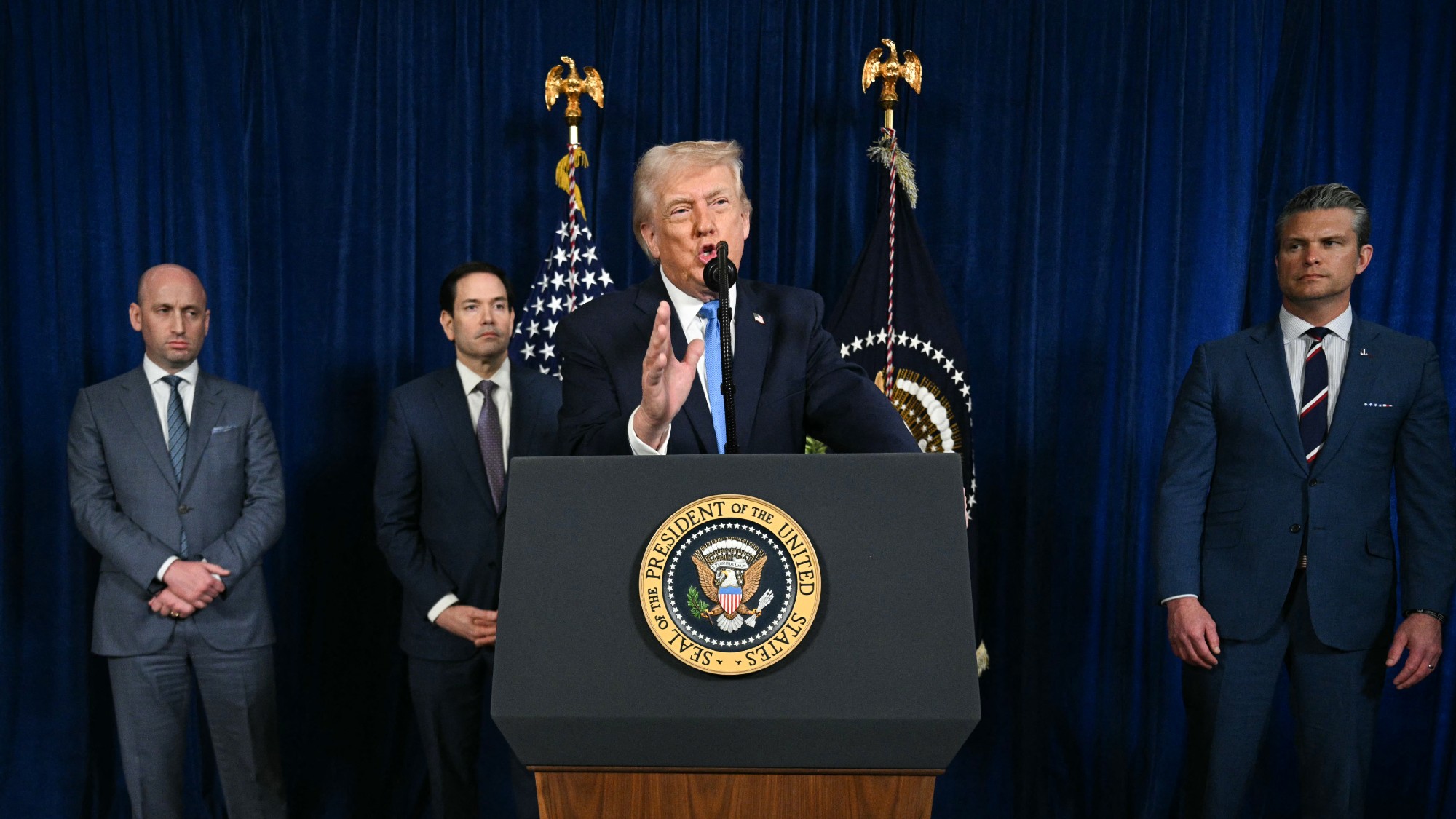 What is the Donroe Doctrine?
What is the Donroe Doctrine?The Explainer Donald Trump has taken a 19th century US foreign policy and turbocharged it
-
 Is a Reform-Tory pact becoming more likely?
Is a Reform-Tory pact becoming more likely?Today’s Big Question Nigel Farage’s party is ahead in the polls but still falls well short of a Commons majority, while Conservatives are still losing MPs to Reform
-
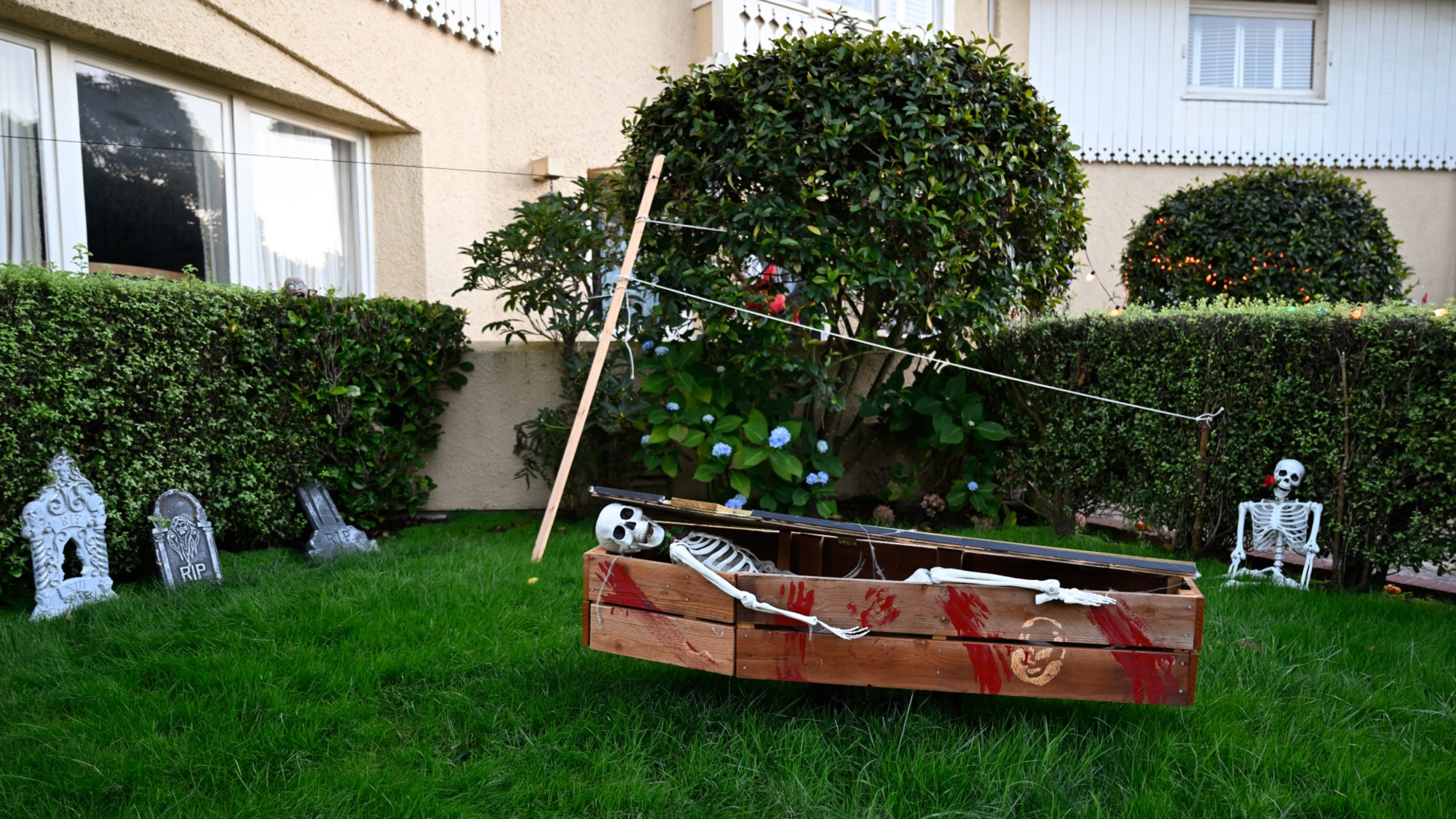 ‘This estrangement from death has beget euphemisms’
‘This estrangement from death has beget euphemisms’Instant Opinion Opinion, comment and editorials of the day
-
 Taking the low road: why the SNP is still standing strong
Taking the low road: why the SNP is still standing strongTalking Point Party is on track for a fifth consecutive victory in May’s Holyrood election, despite controversies and plummeting support
-
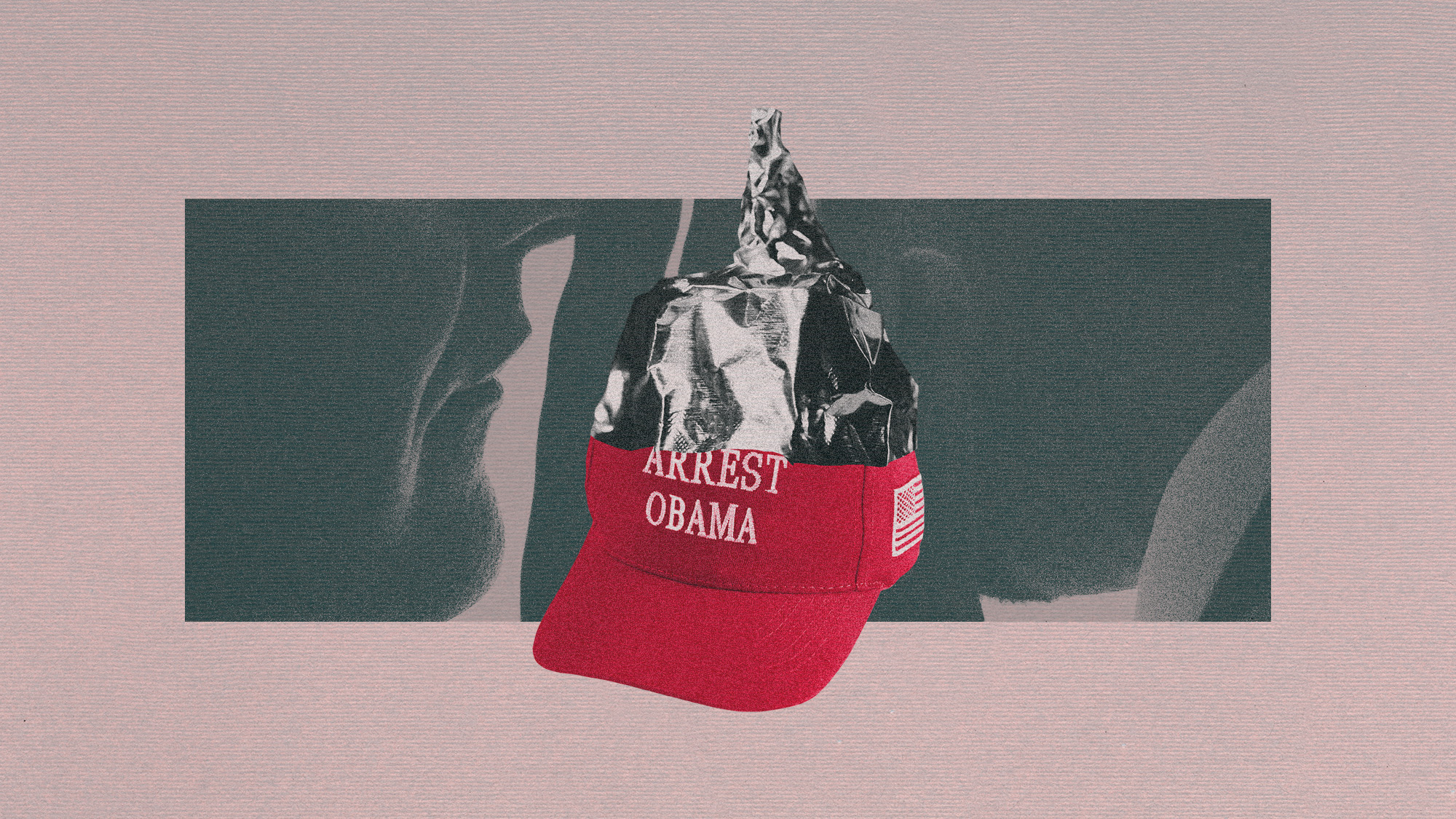 Will Trump actually prosecute Obama for 'treason'?
Will Trump actually prosecute Obama for 'treason'?Today's Big Question Or is this just a distraction from the Jeffrey Epstein scandal?
-
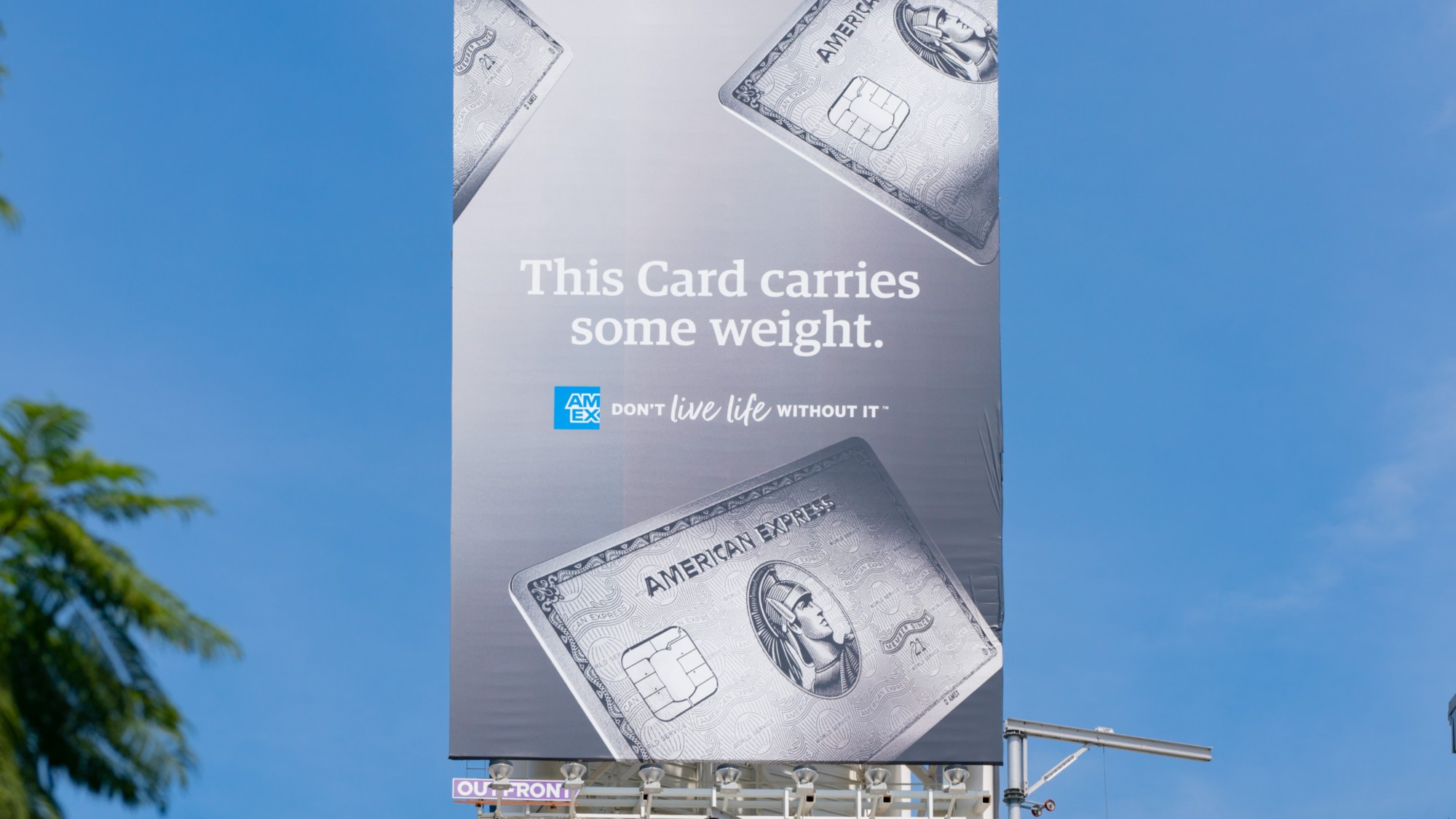 'Spending is what card issuers are hoping you will do'
'Spending is what card issuers are hoping you will do'Instant Opinion Opinion, comment and editorials of the day